6) Technology for sustainable agriculture
About reuse of water and the recovery of valuable components from water flows.
Chair: Dr. P.M.F. (Peter) van der Maas, Applied Research Professor Sustainable Water Systems, Van Hall Larenstein University of Applied Sciences, The Netherlands
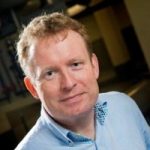 Dr. Peter van der Maas was educated in Environmental Technology at Wageningen University (NL). He has a broad experience in water technology and water quality management. Peter is affiliated with WLN (Glimmen, NL) as a strategic advisor. Besides, he works at VHL university of applied sciences (Leeuwarden, NL) as an applied research professor in the field of sustainable water systems.
Dr. Peter van der Maas was educated in Environmental Technology at Wageningen University (NL). He has a broad experience in water technology and water quality management. Peter is affiliated with WLN (Glimmen, NL) as a strategic advisor. Besides, he works at VHL university of applied sciences (Leeuwarden, NL) as an applied research professor in the field of sustainable water systems.
- Willem van Baak (Water Future) – Is zero emission target of water and nutrients for the Dutch greenhouse in 2027 realistic?
- Chris Schott (Wetsus) – Phosphorus recovery from dung: the anaerobic calcium phosphate granulation
- Tom Wijers (VHL UAS) – Circular duckweed farming on large scale
- Dr.ir. Ruud P. Bartholomeus (KWR) – Matching agricultural freshwater supply and demand – Using recycled (waste)water for sub-irrigation purposes
IS ZERO EMISSION TARGET OF WATER AND NUTRIENTS FOR THE DUTCH GREENHOUSE IN 2027 REALISTIC?
Willem van Baak, BSc, Owner/ CEO Future Water, The Netherlands
In the Netherlands, the crops are produced very efficiently in a greenhouse. With restricted light, less water, innovative technologies high crop yields are obtained. The Dutch greenhouse sector is running ahead.
Still, environmental problems are encountered in the Netherlands by the high water consumption, nutrients and pesticide emission of the greenhouse. Is it possible to achieve zero emission of water and nutrients in 2027 ? The bottlenecks and the technical possibilities will be discussed.
CV/BIO
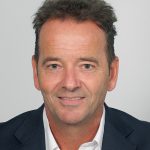 Willem van Baak worked for 27 years in the R&D department of FUJIFILM, Tilburg , the Netherlands. As R&D manager, he was involved in the product development of the ion exchange membranes. With his chemical engineering background, he led several high innovation projects in the field of water purification and energy generation. Since April 2018, he has established his own startup Future Water BV. With the development of water purification systems, he likes to make his contribution to reduce the water stress.
Willem van Baak worked for 27 years in the R&D department of FUJIFILM, Tilburg , the Netherlands. As R&D manager, he was involved in the product development of the ion exchange membranes. With his chemical engineering background, he led several high innovation projects in the field of water purification and energy generation. Since April 2018, he has established his own startup Future Water BV. With the development of water purification systems, he likes to make his contribution to reduce the water stress.
PHOSPHORUS RECOVERY FROM DUNG: THE ANAEROBIC CALCIUM PHOSPHATE GRANULATION
Chris Schott, MSc, PhD candidate, Wetsus, The Netherlands
Phosphorus is essential for life on earth due to its various functions in growth and energy mechanisms of fauna and flora. Its natural resource, Phosphate Rock, is finite, demanding sustainable phosphorus use and calling for development of recovery technologies from waste streams. Modern agriculture has high demand for phosphorus to sustain efficient production of crops and livestock. The production of calcium phosphate granules during anaerobic treatment of human and animal excreta can enable the circular use of phosphorus.
BIO/CV
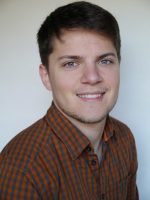 Chris Schott studied the recovery of resources from waste streams during his BSc and MSc of Water Technology. In 2016, he joined Wetsus as a student to research the production of calcium phosphate granules from black water. This month, he started his PhD work focusing on the recovery of phosphorus from animal manure.
Chris Schott studied the recovery of resources from waste streams during his BSc and MSc of Water Technology. In 2016, he joined Wetsus as a student to research the production of calcium phosphate granules from black water. This month, he started his PhD work focusing on the recovery of phosphorus from animal manure.
CIRCULAR DUCKWEED FARMING ON LARGE SCALE
Tom Wijers, MSc, researcher, Van Hall Larenstein, The Netherlands
Duckweed is a fast growing floating plant with a protein content comparable to soy but with a greater biomass yield. At a dairy farm in Hardegarijp we culture duckweed in a 2000m2 pond using the digestate from their manure digester and use their residual heat to increase the duckweed culture efficiency. The duckweed harvested can be used as a sustainable alternative to soy as cow feed while making efficient use of the nutrients from the digestate.
BIO/CV
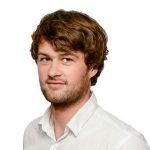 Tom Wijers studied Marine Biology at the University of Groningen where he worked on several microalgae related projects. After finishing his master in 2013 he worked for the company OmegaGreen helping with designing large scale microalgae systems and the culturing of algae but also duckweed as new sources of protein. Since 2015 he is working as a researcher for Van Hall Larenstein working on different aquatic biomass projects with the focus on proteins from seaweed, microalgae and duckweed.
Tom Wijers studied Marine Biology at the University of Groningen where he worked on several microalgae related projects. After finishing his master in 2013 he worked for the company OmegaGreen helping with designing large scale microalgae systems and the culturing of algae but also duckweed as new sources of protein. Since 2015 he is working as a researcher for Van Hall Larenstein working on different aquatic biomass projects with the focus on proteins from seaweed, microalgae and duckweed.
MATCHING AGRICULTURAL FRESHWATER SUPPLY AND DEMAND – USING RECYCLED (WASTE)WATER FOR SUB-IRRIGATION PURPOSES
Dr.ir. Ruud P. Bartholomeus, senior scientific researcher and advisor at KWR Watercycle Research Institute, The Netherlands
As a result of climate change, agriculture will be confronted more and more with yield losses due to drought. The use of alternative freshwater sources, such as treated wastewater from industries and sewage treatment plants, can reduce drought damage. However, this waste water contains various substances foreign to the environment. What are the advantages and risks of using recycled water in agriculture? We present results of a pilot study in Haaksbergen (Water board Vechtstromen, the Netherlands), where excess wastewater is delivered to the plant root zone through sub-irrigation using a climate drainage system.
CV/BIO
KWR Watercycle Research Institute & Wageningen UR, Soil Physics and Land Management. ruud.bartholomeus@kwrwater.nl
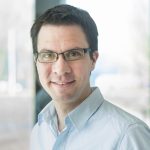 Dr.ir. Ruud P. Bartholomeus works as senior scientific researcher and advisor at KWR Watercycle Research Institute and as guest researcher at Wageningen UR. Topics are the re-use of treated (industrial) waste water for agricultural water supply, methods to quantify the effect of too little or too much water on agricultural yields, and estimating groundwater recharge and evapotranspiration. He coordinates the theme ‘Freshwater resources management’ in the research program ‘Water in the Circular Economy’ (WiCE).
Dr.ir. Ruud P. Bartholomeus works as senior scientific researcher and advisor at KWR Watercycle Research Institute and as guest researcher at Wageningen UR. Topics are the re-use of treated (industrial) waste water for agricultural water supply, methods to quantify the effect of too little or too much water on agricultural yields, and estimating groundwater recharge and evapotranspiration. He coordinates the theme ‘Freshwater resources management’ in the research program ‘Water in the Circular Economy’ (WiCE).